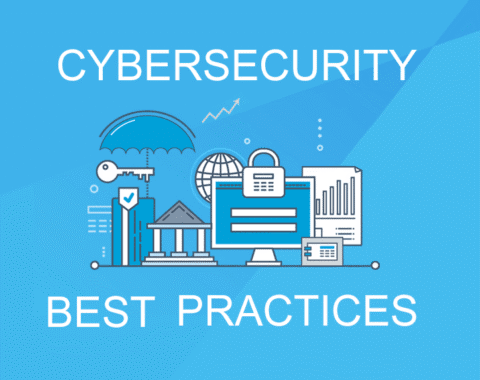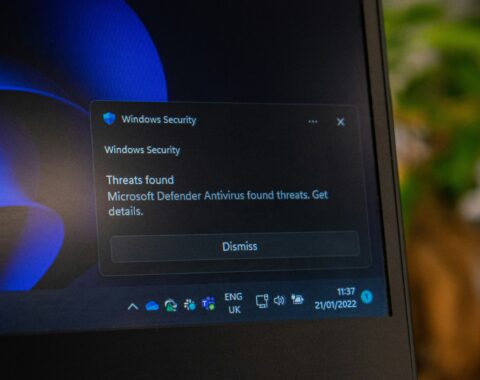Cybersecurity threats continue to grow, but the resources available to combat them are not always guaranteed. Recent federal budget cuts have impacted key agencies and programs that help protect businesses from cyber threats. While large corporations often have the means to adjust, small and mid-sized businesses (SMBs) rely heavily on these public-sector initiatives for guidance, threat intelligence, and regulatory support.
Understanding how these cuts affect the cybersecurity landscape can help SMBs take proactive steps to safeguard their systems, data, and customers.
Reduced Federal Cybersecurity Oversight and Support
Cuts to agencies like the Cybersecurity and Infrastructure Security Agency (CISA), Federal Bureau of Investigation (FBI) Cyber Division, and other cybersecurity-focused government programs may result in slower response times, fewer resources for small businesses, and decreased public-private collaboration.
For instance, CISA has been a critical resource for SMBs by providing free cybersecurity assessments, best practices, and real-time threat intelligence. A reduction in funding may lead to fewer training opportunities, decreased outreach efforts, and limited access to federal cybersecurity grants that help SMBs strengthen their defenses.
How SMBs Can Respond:
- Seek out alternative resources: Organizations like the National Institute of Standards and Technology (NIST) and industry-specific cybersecurity alliances provide best practices and frameworks to enhance security.
- Invest in cybersecurity education: Businesses should prioritize internal cybersecurity training to compensate for the potential reduction in government-led initiatives.
- Consider private-sector partnerships: Working with managed security service providers (MSSPs) can help bridge the gap left by decreased federal support.
Diminished Threat Intelligence and Incident Response Support
Federal agencies play a crucial role in monitoring and mitigating large-scale cyber threats, including ransomware attacks and nation-state-sponsored cyber activities. Budget reductions may lead to fewer personnel dedicated to tracking these threats, slower responses to security incidents, and limited collaboration between government and private sectors.
SMBs that rely on threat intelligence feeds and public alerts from agencies like CISA and the FBI may find themselves with less up-to-date information on emerging threats. Additionally, law enforcement assistance for cybercrime investigations, such as business email compromise (BEC) fraud or ransomware incidents, could face delays.
How SMBs Can Respond:
- Subscribe to multiple threat intelligence sources: Consider commercial cybersecurity intelligence platforms and industry-specific threat-sharing groups.
- Enhance internal monitoring: Implement advanced threat detection tools like Endpoint Detection and Response (EDR) solutions to identify potential threats earlier.
- Develop a self-reliant incident response plan: Ensure your business has a clear cybersecurity response strategy that does not solely rely on government support.
Increased Burden on SMBs for Compliance and Risk Management
Federal cybersecurity regulations and compliance frameworks, such as CMMC (Cybersecurity Maturity Model Certification), HIPAA, and the FTC Safeguards Rule, often depend on agencies that provide guidance, oversight, and enforcement. With reduced funding, there may be fewer compliance audits, less technical assistance, and potentially slower updates to security best practices.
While this might seem like a temporary relief from compliance pressure, it can create uncertainty and leave businesses vulnerable to regulatory shifts or future enforcement actions. The lack of clear guidance can make it harder for SMBs to know if they are meeting security standards, which could lead to costly compliance violations down the road.
How SMBs Can Respond:
- Stay proactive in compliance: Work with IT and legal experts to ensure ongoing adherence to cybersecurity regulations, even if enforcement slows.
- Adopt established frameworks: Utilize resources like the NIST Cybersecurity Framework to build a solid security foundation.
- Engage with industry groups: Many trade associations offer compliance guidance tailored to specific sectors.
The Need for Self-Sufficiency in Cybersecurity
While federal agencies remain critical in the fight against cybercrime, budget cuts mean that SMBs must take on greater responsibility for their own cybersecurity posture. This includes investing in proactive security measures, incident response planning, and ongoing training for employees.
Cyber threats are not slowing down, and businesses that rely too heavily on shrinking government resources may find themselves at greater risk. By staying informed, leveraging private-sector solutions, and prioritizing security investment, SMBs can navigate these challenges and protect themselves in an evolving threat landscape.
Key Takeaways for SMBs:
✔ Don’t wait for regulation or enforcement—implement strong security measures now.
✔ Explore private cybersecurity solutions to compensate for reduced government resources.
✔ Monitor multiple sources for threat intelligence and compliance updates.
✔ Develop a robust internal cybersecurity strategy that reduces reliance on external agencies.
By taking a proactive approach, SMBs can strengthen their cybersecurity resilience despite changes in federal support.



